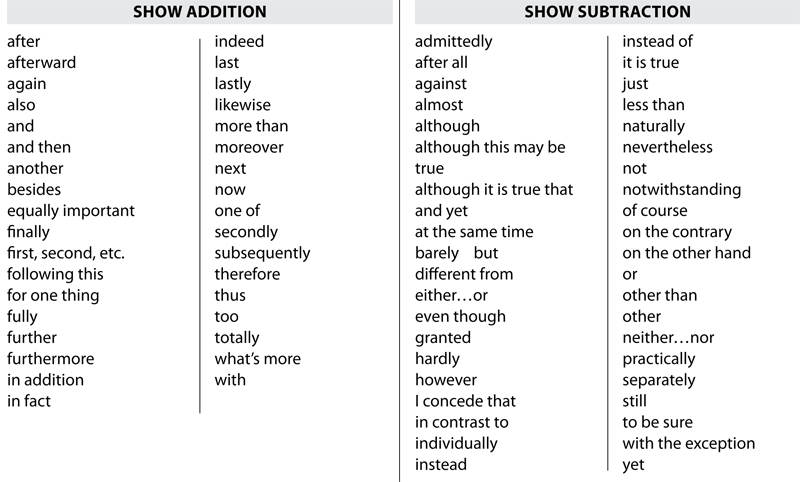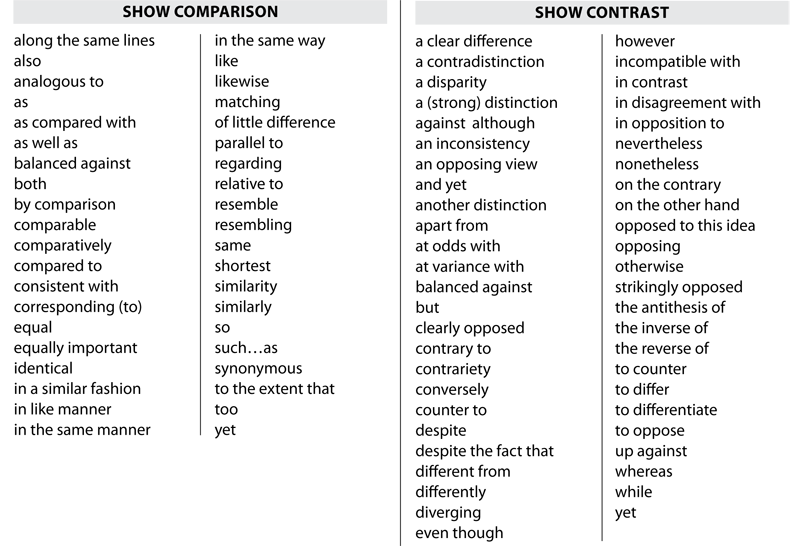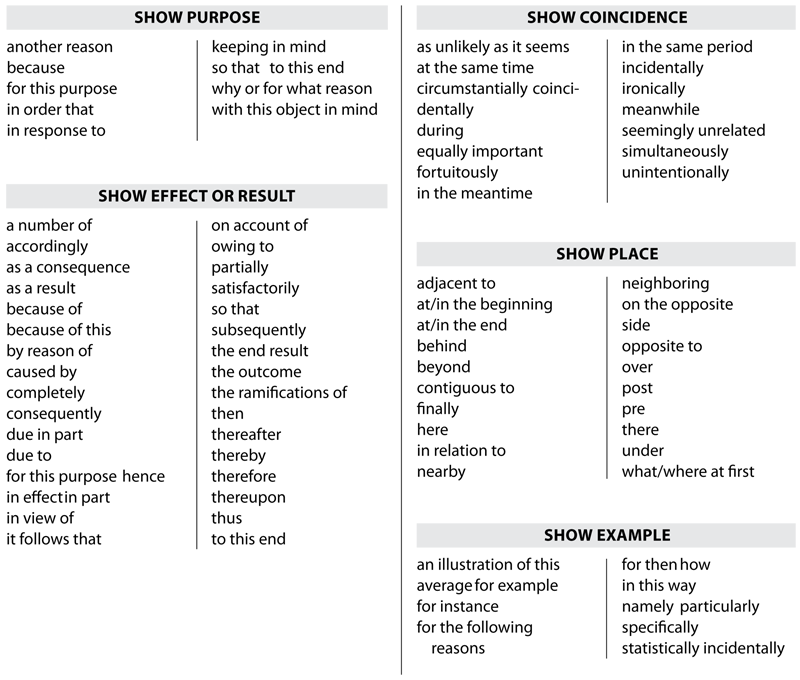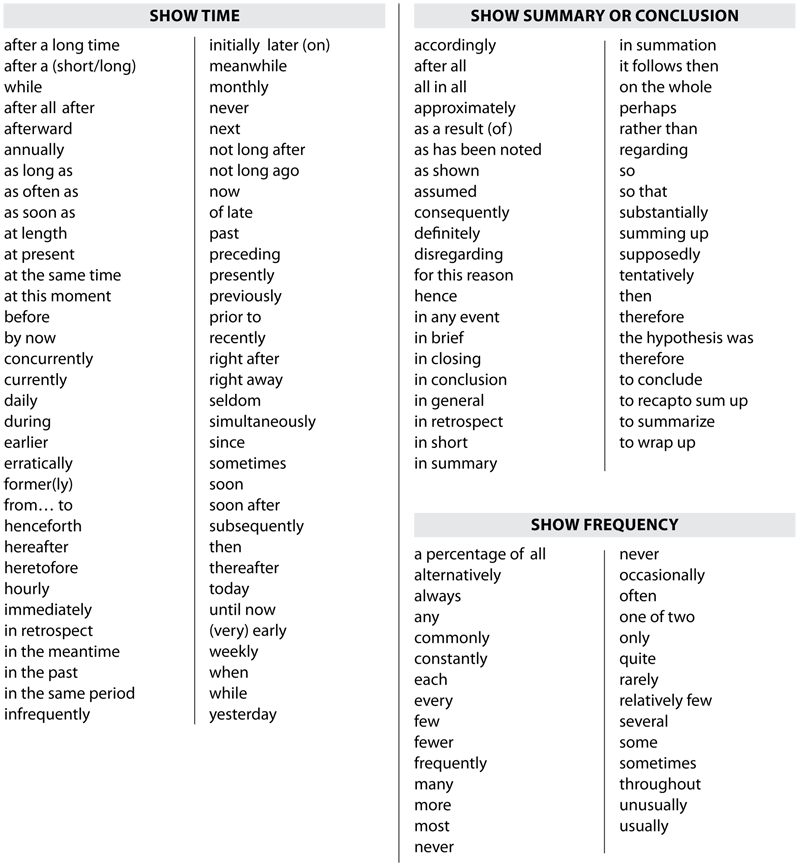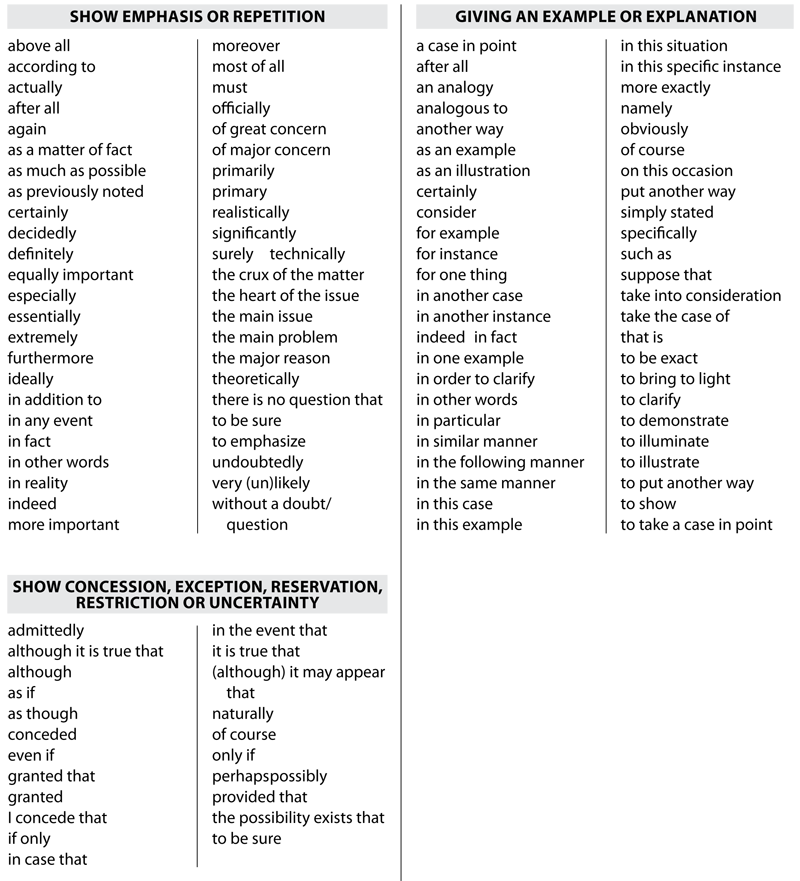Developing a Thesis Statement
- 1. Make an assertion about your narrowed topic.
- Lacks assertion: My Uncle George was falsely arrested for shoplifting.
Revised: My Uncle George's false arrest for shoplifting taught me a valuable lesson about selecting friends.
Lacks assertion: Faulkner's The Sound and the Fury tells of problems in the Compson family.
Revised: A close study of Faulkner's The Sound and the Fury reveals many of the underlying causes of the Compson family's deterioration.
The first thesis states a fact; the revised thesis develops an idea about the fact.
- 2. Be specific and provide enough detail.
- Too general: I learned a great deal from being a teenage parent.
Revised: From my experiences as a teenage parent, I learned to accept responsibility for my own life and for my son.
Too general: William Shakespeare's Romeo and Juliet is a tragedy.
Revised: In Romeo and Juliet, William Shakespeare shows that a lack of communication between generations leads to tragedy.
The first thesis is too general because it does not suggest what the writer learned.
- 3. Focus on one central point if you are writing a paragraph.
- Focuses on several points: This college lacks in the areas of tutoring, activities for Latino students, and the speed of registration.
Revised: To better represent the student population it serves, this college should sponsor more activities of interest to Latino students.
Focuses on several points: Wetherell's The Bass, the River, and Sheila Mant tells about the narrator, Sheila Mont, their first date and the narrator's love of fishing.
Revised: Wetherell's The Bass, the River, and Sheila Mant explores the loss of innocence experienced by the narrator who both benefits and suffers from his loss.
The first thesis makes three separate points (the need for tutoring, activities for Latino students, and faster registration), each of which could become the main point of a short essay by itself.
- 4. Offer an original perspective on your narrowed topic.
- Too ordinary: Many traffic accidents are a result of carelessness.
Revised: When a driver has an accident, it can change his or her entire approach to driving forever.
Too ordinary: In Where Have You Gone, Charming Billy? the characters are afraid of the war.
Revised: In Where Have You Gone, Charming Billy? fear affects the characters' reactions to the experiences of war.
The first thesis makes an assertion that few would dispute. If no one would disagree with you, it's not worth writing about.
- 5. Avoid announcing your main point.
- Do NOT use phrases such as "This essay will be about…" orm "I'm going to tell you…" or "The subject of my paper is…". Instead, state your main point directly.
- Announces the main point: The point I am trying to make is that people should not be allowed to smoke on campus.
Revised: The college should prohibit smoking on campus.
Announces the main point: I am going to tell you the similarities and differences, such as goals, work habits, and personality, about Finny and Gene.
Revised: While Gene and Finny are similar, the two characters have different goals, work habits, and personality.
- 6. Use your thesis to preview the organization of the essay.
- Consider using your thesis to mention the two or three key concepts on which your essay will focus, in the order in which you will discuss them.
- Original: Access to the Internet will have positive effects on high school students.
Revised: Access to the Internet will improve the research abilities and communication skills of high school students.
Original: Antigone stands up for what is right.
Revised:Revised: The main character, Antigone, shows courage when she disobeys the King, disregards the soldier's actions, and is willing to die for her beliefs.
- 7. Do not hesitate to revise or change your thesis.
- As you work on your essay, you may realize that your thesis is still too broad, or you may discover a more interesting approach to your narrowed topic.
Guidelines for Revising a Rough Draft
- Once you have completed your draft, set it aside overnight or a day if possible before you begin revising. You didn't marry it — it was just a first date.
- Read your paper out loud to see how it sounds. Your writing should be clear and natural. If it isn't, simplify it — say exactly what you want to say as clearly as you can.
- Ask a friend to read your paper aloud to you. Listen for clues that tell whether your draft flows logically and whether it makes sense to your reader. When your reader hesitates, slows down, misreads, or sounds confused, it is a signal to you that your writing is not as clear as it should be.
- Check your sentences.
- Does each sentence express a complete thought (no fragments)?
- Is each sentence clear and colorful?
- Is each sentence punctuated as a complete sentence (no run-ons)?
- Have you used a combination of sentence lengths and types?
- Are all of your sentences simple sentences? Use simple, compound, and complex.
- Is any sentence exceptionally long? If so, it must be a strong sentence or you should consider breaking into two or more sentences.
- Check your sentence beginnings.
- Do not start sentence after sentence with the same word (I…, He…, It…) unless this is part of your strategy.
- Make sure that your writing is to the point.
- Take out any words, phrases or ideas which are repeated or which pad rather than add to your writing. We call this advice "write tight."
- Replace any words or phrases that are too general or overused.
- Use nouns that are specific.
- Use adjectives and adverbs that are fresh and colorful.
- Use active verbs as much as possible; they are lively and vivid.
- Avoid overusing the "to be" verbs (am, is, are, was, were, be, being, been).
- Replace any words or phrases which may confuse the reader.
- Check for agreement of subject and verb.
- Check word choice. Is there a word that you can use that more clearly states your point?
- Improve the style and clarity of your writing by using simile, metaphor, personification, or other literary devices wherever appropriate.
- Define any terms that your reader may not understand, keeping your audience in mind.
- Replace or take out any supporting facts and details which do not prove the point you are trying to make.
- Add clarifying sentences which add details to make the topic clearer and completing sentences which add details and examples that are more specific than clarifying sentences.
- Ask when, where, why, how, to what extent about each of your ideas.
- In narrative essays, use details from personal experiences (your own or examples from the world or literature) whenever possible.
- Study each of your paragraphs.
- Does each paragraph have a clear purpose and focus (topic sentence)?
- Is each major idea developed and supported?
- Are the details arranged in a logical order?
- Have you used transitions within and between paragraphs so that your writing moves smoothly from start to finish?
- Does your writing accomplish what you set out to accomplish?
- Did you follow all rules for spelling, capitalization, punctuation and usage?
- Did you use the correct format (heading, title, indent, margins)?
Transition Words
Transitions perform two functions: they are bridges from one idea to another, and they are signals to the reader that you are moving somewhere. The goal of any transition is to assist the reader, so use them to provide clarity, not just to add words. Below you will find transition words divided by function.
